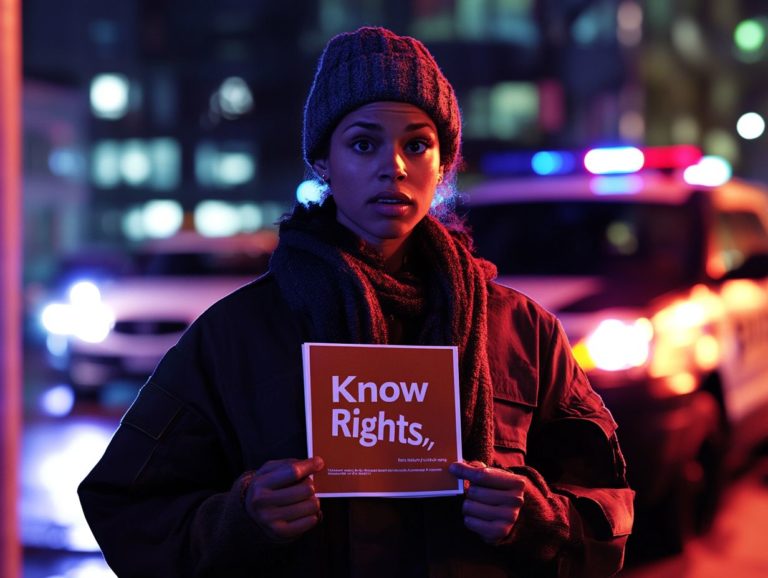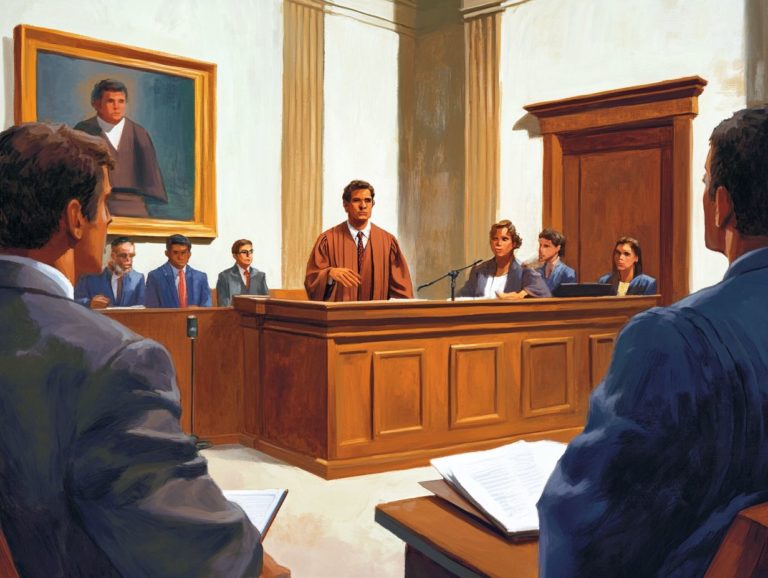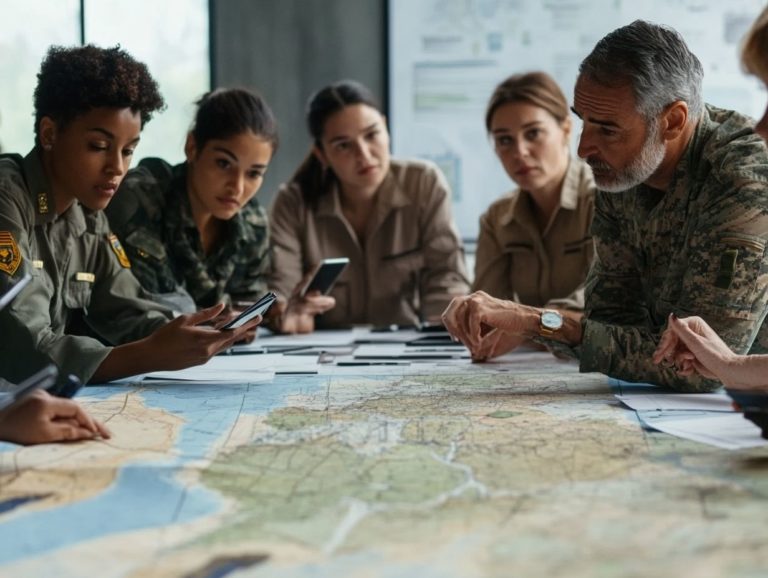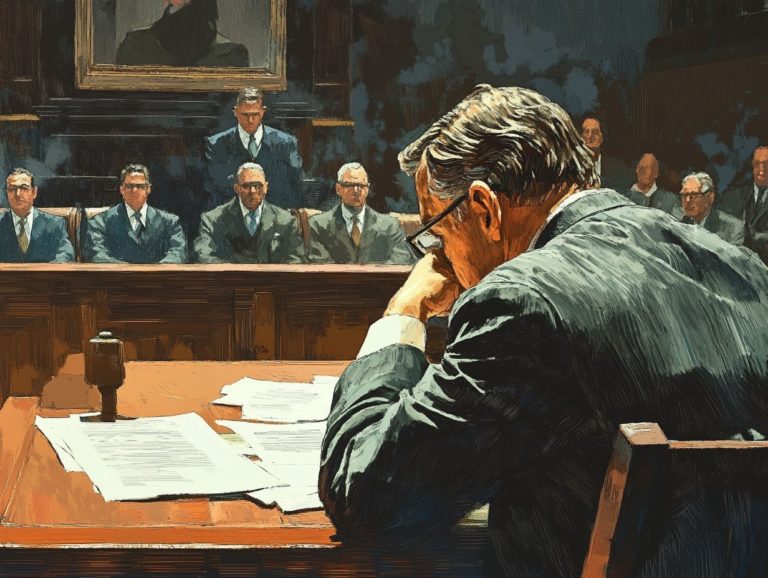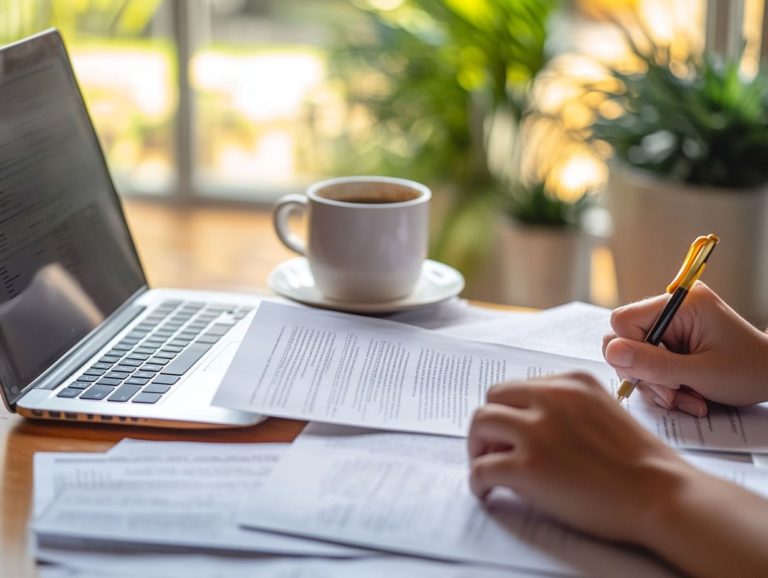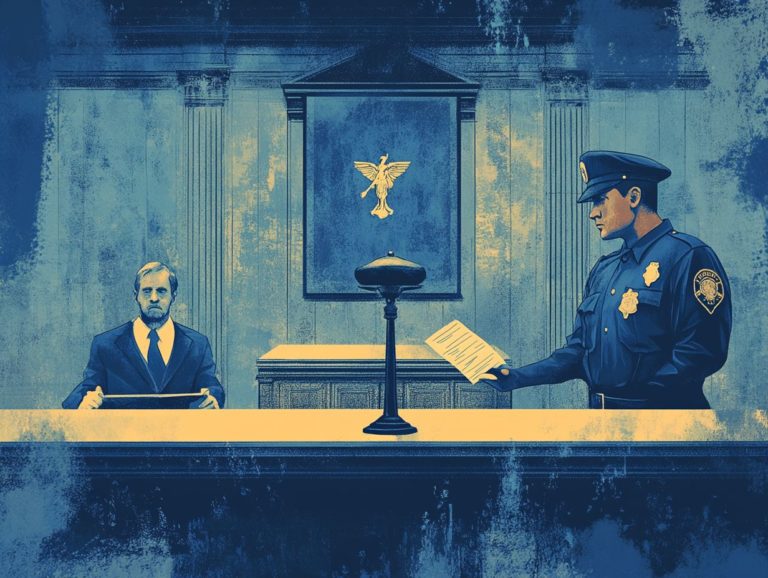What Is the Role of Expert Witnesses?
Get ready to dive into the fascinating world of expert witnesses, where their unique skills can make or break a case! Expert witnesses hold a pivotal position in the legal system, offering specialized knowledge that can greatly sway the outcome of court cases.
Whether they are medical professionals or forensic analysts, these experts bring a treasure trove of insights, aiding juries and judges in navigating complex subjects. This article explores the definition and qualifications of expert witnesses, the various types available, and their essential roles in court proceedings.
It also addresses the intricacies involved in selecting and preparing these professionals, as well as the challenges they encounter in their work. The article also explores how this field is evolving to meet the demands of contemporary legal challenges. Dive in to discover the multifaceted realm of expert witnesses and their substantial influence on the legal landscape.
Contents
- Key Takeaways:
- Understanding Expert Witnesses
- Types of Expert Witnesses
- The Role of Expert Witnesses in Court Cases
- Selecting and Preparing an Expert Witness
- Challenges and Controversies Surrounding Expert Witnesses
- The Future of Expert Witnesses
- Frequently Asked Questions
- What is the role of expert witnesses in a court case?
- How are expert witnesses chosen for a court case?
- What qualifications do expert witnesses have?
- What are the responsibilities of an expert witness?
- Do expert witnesses have to testify in court?
- How does the testimony of an expert witness impact a court case?
Key Takeaways:
Expert witnesses play a crucial role in legal cases by providing specialized knowledge and opinions to assist the court in reaching a fair decision.
When selecting an expert witness, consider their qualifications, experience, and potential biases to ensure they are a suitable and credible witness.
As advancements in technology and science continue, the role of expert witnesses is evolving. It’s important to monitor and address any challenges or controversies that may arise in the future.
Understanding Expert Witnesses
Grasping the role of expert witnesses is essential in legal proceedings. They offer specialized knowledge and expert opinions on intricate matters that can greatly influence the outcome of a case.
These professionals, often hailing from the scientific community, serve a pivotal role during trials and pre-trial hearings. They help illuminate technical issues for judges and juries, making complex concepts more accessible.
Their credibility, qualifications, and capacity to present an impartial opinion are vital, following legal rules that ensure the expert s testimony is trustworthy.
Definition and Qualifications
Expert witnesses are individuals with specialized knowledge called upon in legal proceedings to provide their expert opinions and insights on specific technical issues relevant to a case.
Their qualifications often include advanced degrees, professional certifications, and substantial experience in their fields. This enables them to offer a clear and informed perspective.
When evaluating an expert’s credentials, scrutinize their education, prior work, and publications to ensure they possess the requisite expertise. Courts determine the admissibility of their testimony based on established legal standards, including relevance, reliability, and the expert’s qualifications.
Disclosure of expert witnesses is crucial for maintaining transparency in legal proceedings. It allows both parties to prepare adequately. Ultimately, these professionals play a pivotal role in shaping case outcomes, bringing clarity to complex matters that might otherwise baffle juries and judges.
Types of Expert Witnesses
You ll find a diverse array of expert witnesses, each honing their expertise in distinct fields like forensic science, medicine, finance, and engineering. This specialization enables them to offer invaluable insights in intricate legal cases.
Every detail is thoroughly examined and understood, making expert witnesses indispensable in the courtroom.
Understanding how expert witnesses shape legal outcomes can empower you as a legal professional or informed citizen!
Different Areas of Expertise
Expert witnesses come from various backgrounds, including forensic, medical, financial, and engineering experts. Each type offers unique insights that enhance courtroom proceedings.
Forensic experts, such as toxicologists and DNA analysts, analyze physical evidence. They help establish connections between suspects and crime scenes.
Their work is crucial in unraveling legal complexities, often serving as the key to uncovering the truth.
Medical experts play a significant role in personal injury and malpractice cases. They evaluate injuries and treatment protocols to determine negligence, which can make or break a case.
Financial experts explore economic damages and fraud. They use forensic accounting, which involves analyzing financial records to investigate fraud, ensuring precise evaluations of monetary losses.
Engineering experts assess structural integrity and equipment failures. Their insights illuminate technical aspects that can influence case outcomes.
The Role of Expert Witnesses in Court Cases
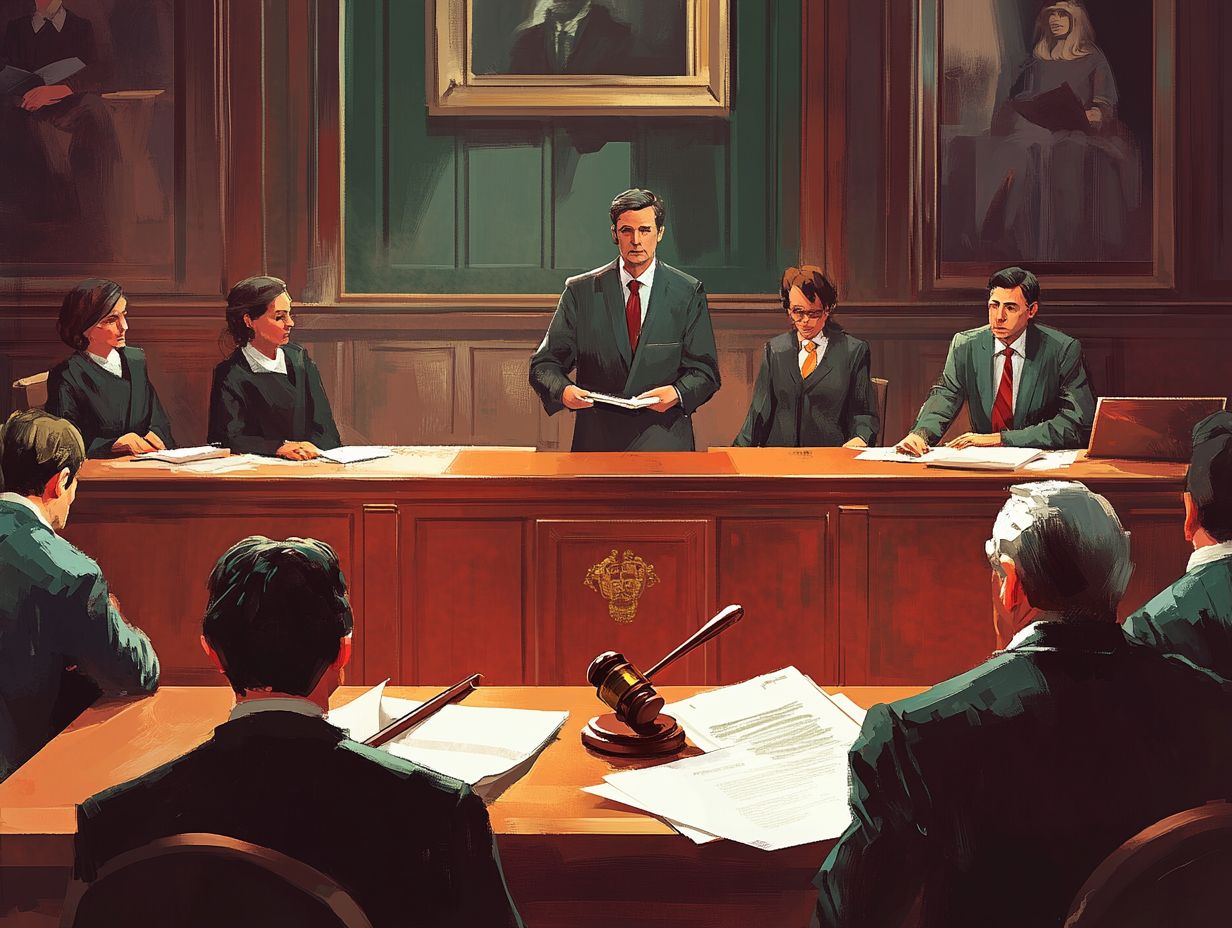
The role of expert witnesses in court cases is multifaceted. They provide invaluable testimony, assist in trial preparation, and help juries understand complex information beyond their expertise.
How They Are Utilized
Expert witnesses are essential in legal proceedings. Their testimony and analysis can significantly influence case outcomes.
Consider them a secret weapon; they interpret complex data and technical details that may confuse the average person. By offering insights grounded in scientific, medical, or technical principles, they empower attorneys to build stronger arguments.
Their authoritative opinions can sway judges and juries, making them integral to the litigation process. In high-stakes cases, expert witnesses decipher intricate evidence, shape trial narratives, and impact legal outcomes profoundly.
Selecting and Preparing an Expert Witness
Choosing the right expert witness can make all the difference in your case! It involves carefully evaluating their qualifications, understanding their fees, and ensuring they are thoroughly prepared for testimony.
This process is vital for presenting a credible and effective opinion that can greatly influence your case’s outcome.
Criteria for Choosing an Expert
When selecting an expert witness, closely examine their qualifications and experience, as well as their ability to communicate complex insights effectively.
A thorough assessment of an expert’s credentials is essential. Their professional background and specialized knowledge significantly impact your case’s outcome.
Their track record in similar legal battles and familiarity with relevant regulations provide invaluable context for both the judge and jury.
Communication skills are also crucial; an expert must articulate complex concepts in an accessible manner.
Given the importance of court admissibility, ensure the witness meets the legal standards set by your jurisdiction. This careful consideration paves the way for impactful and credible testimony.
Preparing an Expert for Testimony
Preparing an expert for testimony requires careful trial preparation. The focus should be on their ability to deliver clear expert analysis and withstand the rigors of cross-examination, which is the questioning of a witness by the opposing side in court, while upholding performance standards.
This preparation is absolutely essential for success! It gives the expert the power to communicate complex information in a manner that is both accessible and comprehensible to the judge and jury.
By building a solid foundation of knowledge, experts can navigate the intricacies of questioning confidently, ensuring they remain on point rather than being sidestepped.
Effective communication skills are vital. Experts must clearly articulate their findings and address critiques confidently.
Familiarizing the expert with common cross-examination tactics equips them to respond adeptly, preserving their credibility throughout the process.
A well-prepared expert witness not only strengthens the case but also plays a critical role in shaping the trial’s outcome, making their preparation an invaluable investment.
Challenges and Controversies Surrounding Expert Witnesses
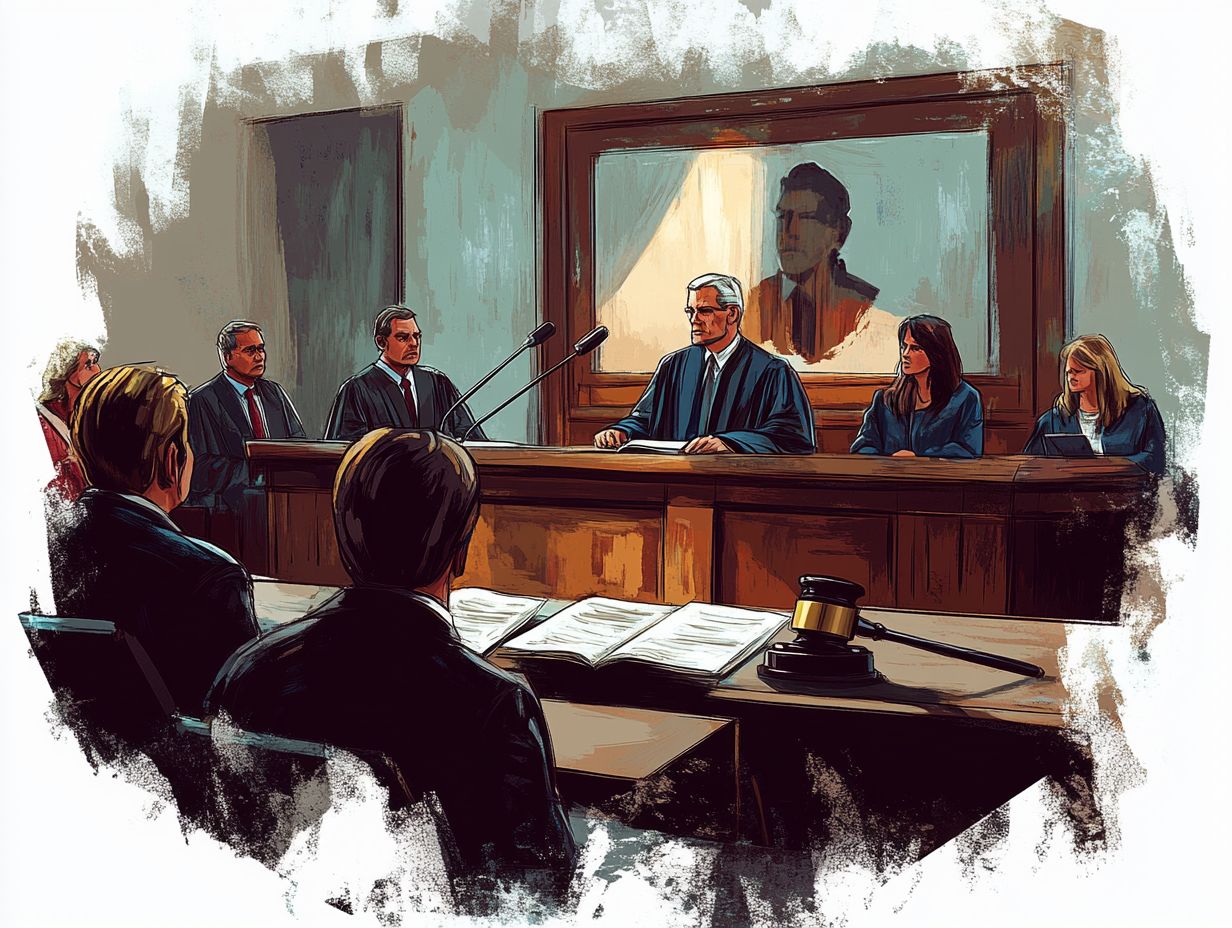
You will often encounter challenges and controversies surrounding expert witnesses, primarily stemming from criticisms related to their potential biases and the significance of expert testimony, as well as the processes used to assess their credibility in legal contexts.
Understanding Bias in Expert Testimony
Criticism and potential bias surrounding expert witnesses are crucial topics that demand attention. They raise valid concerns about impartiality and the integrity of expert testimony in court, especially under various court rules.
These concerns often arise from the very nature of the expert’s role, which can be swayed by financial incentives or strong allegiances to one side of a case. Consequently, it s vital to carefully check the credentials and motivations of these witnesses.
The implications of perceived bias can significantly undermine the credibility of their valuable opinions, leading juries to question the validity of the evidence presented.
Upholding the integrity of expert testimony is essential. It influences individual cases and shapes the broader perception of the judicial system’s fairness and reliability.
The Future of Expert Witnesses
The future of expert witnesses will likely be influenced by advancements in legal technology and shifts within the field itself.
These developments will enable you to access more efficient expert witness search services and enhance the delivery of valuable insights during legal proceedings.
Advancements and Changes in the Field
Advancements in legal technology are transforming the realm of expert witnesses. They are elevating the efficiency of expert witness search services and expanding the variety of experts available for legal representation.
With state-of-the-art platforms and AI-driven algorithms at your disposal, you can pinpoint specialists across various fields with impressive accuracy. These tools simplify the process of identifying professionals whose expertise aligns seamlessly with the specific nuances of your case.
Data analytics plays a pivotal role by offering insights into an expert’s past testimonies, success rates, and areas of specialization. This enhances your selection process and ensures that you can present the most qualified individuals to bolster your arguments.
As a result, the landscape of expert testimony is becoming increasingly diverse and specialized, mirroring the complex nature of modern legal disputes.
Frequently Asked Questions
What is the role of expert witnesses in a court case?
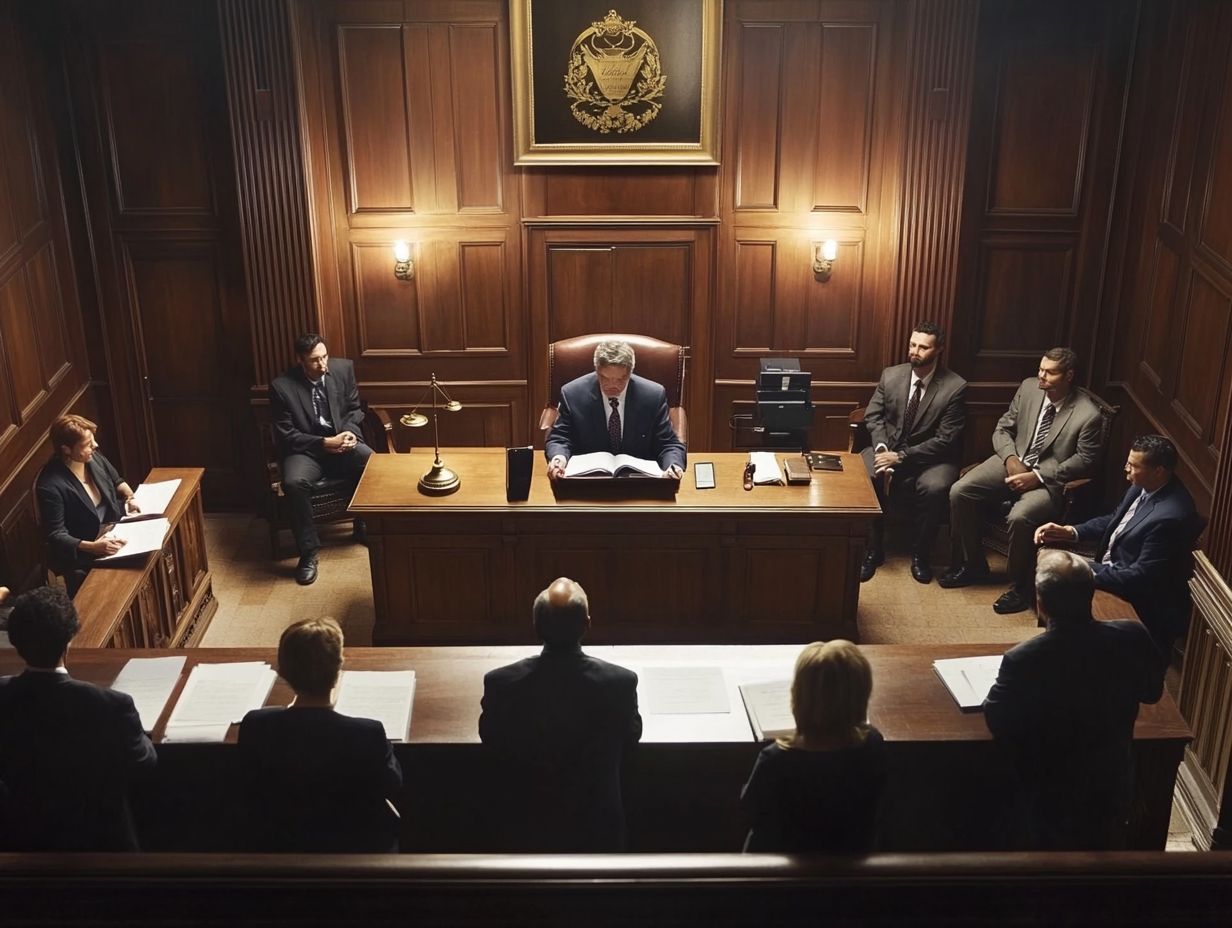
The role of expert witnesses is to provide specialized knowledge or expertise in a particular subject matter to assist the court in understanding complex or technical issues related to a case. Understanding why expert witnesses matter in your defense can significantly influence the outcome of legal proceedings.
How are expert witnesses chosen for a court case?
Expert witnesses are typically chosen by the legal team of the party who is calling upon their expertise. They may be recommended by lawyers or selected through a database of qualified experts.
What qualifications do expert witnesses have?
Expert witnesses are professionals with specialized knowledge. They possess education, training, and extensive experience in their field.
What are the responsibilities of an expert witness?
They review evidence and conduct thorough research. Expert witnesses provide written reports and may speak in front of a judge.
Do expert witnesses have to testify in court?
Expert witnesses don t always need to testify. Sometimes, they provide written reports instead. If called, they must tell the truth.
How does the testimony of an expert witness impact a court case?
Expert witness testimony can dramatically shift the outcome of a court case! Their specialized knowledge helps judges and juries grasp complex issues.

